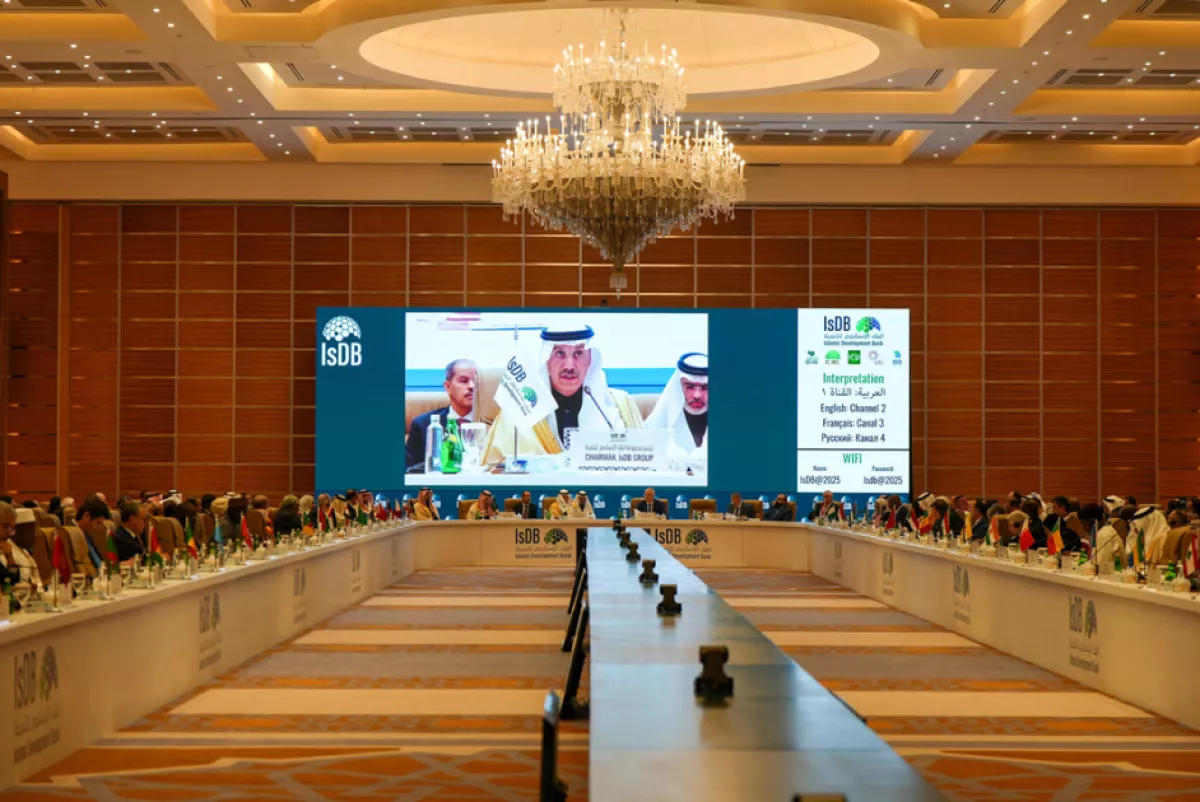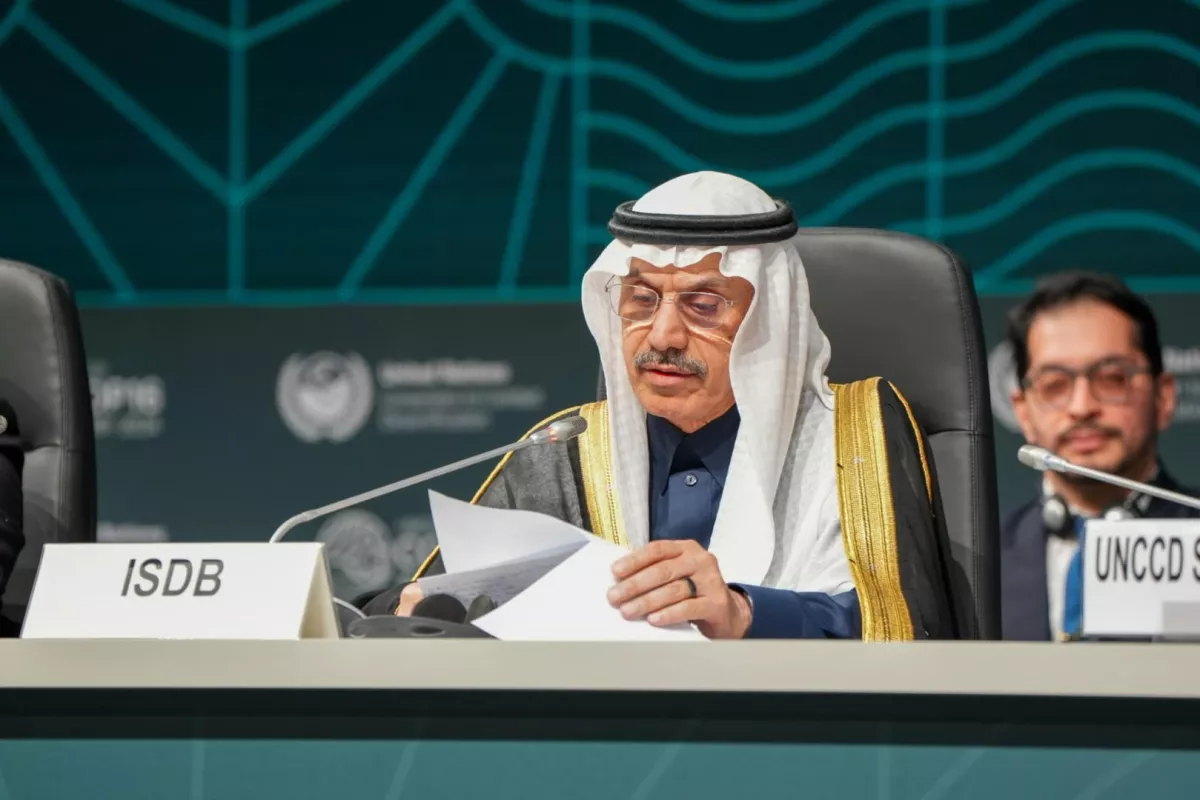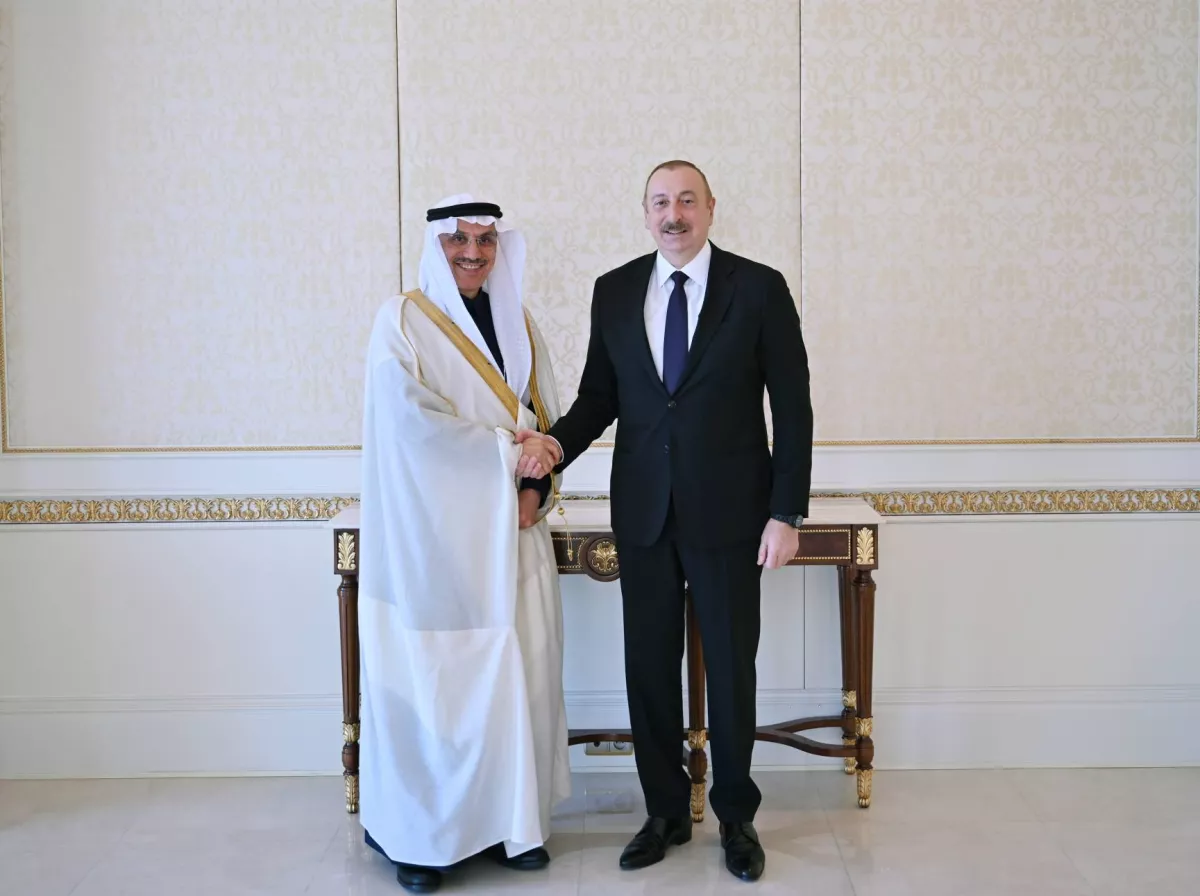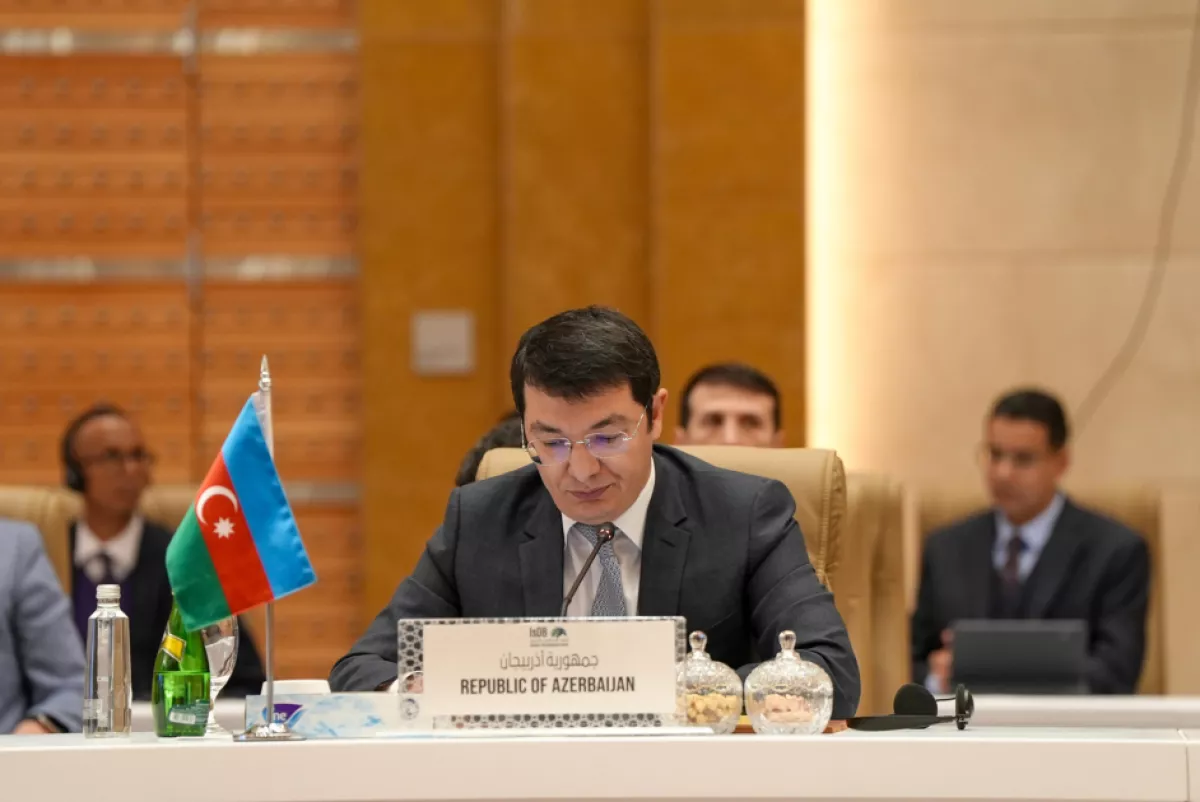Islamic Development Bank’s role in Azerbaijan’s sustainable growth From Karabakh to green energy
Having celebrated its 50th anniversary last year, the Islamic Development Bank (IsDB) has been one of Azerbaijan's leading donors for over 32 years. In January 2024, the government of Azerbaijan and the IsDB signed a memorandum on the preparation of a framework cooperation program, with priorities including financing for the "green" energy sector, transport, ICT, participation in projects for the reconstruction of Karabakh, and more.
Recently, as part of a visit to Saudi Arabia, the First Deputy Minister of Economy of Azerbaijan, Elnur Aliyev, met with IsDB President Muhammad Sulaiman Al-Jasser and also took part in the "Board of Governors" meeting of the IsDB. During the meetings, the prospects for implementing projects in Azerbaijan were discussed, along with the development of the bank's framework document.
Since Azerbaijan became a full member of the Islamic Development Bank (IsDB) in 1992, the bank has approved over seventy projects aimed at developing transport, energy, agricultural, and social infrastructure. These projects also cover the financial sector, social services, water supply, and environmental protection, with total funding exceeding $1.3 billion. Additionally, with the bank's support, access to preferential financing for trade entities and small and medium-sized businesses (SMBs) has improved. Specifically, through IsDB’s financial assistance, Azerbaijan has built electricity generation capacities of 1,060 MW, with 230 MW in the "green" energy sector. Furthermore, 287 km of power lines and distribution networks have been laid, and 400 transformer stations have been installed or upgraded, enhancing energy security and boosting electricity exports.
Loans in the water supply and sanitation sector have enabled the construction from scratch or the reconstruction of over 100 small regional water supply networks in rural communities, benefiting 75,000 people.
In the agricultural sector, loans from the Islamic Development Bank have supported the implementation of irrigation projects across 85,000 hectares of land, as well as the purchase of modern agricultural equipment for farmers.

Over the course of more than thirty years, the majority of the funding — $956 million — has been provided directly by the Islamic Development Bank. The remaining portion of the country’s portfolio, totalling $391 million, was supported by the Islamic Corporation for the Development of the Private Sector (ICD), the International Islamic Trade Finance Corporation (ITFC), as well as other funds and divisions of the IsDB.
"In May 2024, the IsDB Board of Governors marked this year’s 50th anniversary of the Islamic Development Bank by adopting the Riyadh Declaration. This historic declaration celebrates the IsDB’s legacy, reaffirms its ethos, and clarifies its vision for the future. It lays out IsDB’s vision towards promoting economic cooperation, investment, and intertrade, and to mobilizing and channelling funds and other resources flowing from within and beyond the member countries to drive economic and social development, build capacities, and respond to challenges and emergency crises locally and globally, while embracing innovative tools, approaches and technologies," said Muhammad Sulaiman Al-Jasser, Chairman of the IsDB Group, in a recent interview with Azerbaijani media.

As part of this concept, a new country strategy for Azerbaijan is being implemented by the IsDB. Notably, since 2023, there has been a significant increase in the activity of the IsDB Group's structures, which have sought to discuss key priorities and ensure the bank’s involvement in these initiatives through numerous delegations visiting Azerbaijan and meetings at both government and departmental levels.
In particular, the memorandum of understanding signed between the IsDB and the Ministry of Economy of Azerbaijan in January 2024 on preparing a framework cooperation programme outlined the key priority areas. These include financing environmentally sustainable infrastructure, supporting the reconstruction of Karabakh, developing renewable energy sources (RES), and promoting the sustainable extraction of hydrocarbons. The IsDB is committed to supporting the growth of competitiveness and the diversification of the non-oil sector of the economy, including export promotion and innovation in agriculture, as well as the halal ecosystem. Priorities also include digital transformation, Islamic finance, and more.
For example, in the autumn of 2023, the IsDB Group’s subsidiary, ICIEC, explored financing prospects for the "green energy corridor" project, which involves laying a power cable on the seabed of the Black Sea to connect Azerbaijan, Georgia, Romania, Hungary, and Bulgaria.
As mentioned earlier, the financing of projects for the reconstruction of Azerbaijan's liberated territories is among the IsDB's priorities, and the bank has been one of the first global donor organisations to begin implementing specific initiatives. Notably, during the UN Climate Change Conference (COP29) in November of the previous year, an agreement was reached with the IsDB to finance the construction of a main irrigation canal from the "Giz Galasi" reservoir.

During the same period, a meeting took place in Baku between the President of Azerbaijan, Ilham Aliyev, and the head of the IsDB, Muhammad Sulaiman Al-Jasser. They signed an agency agreement, as well as grant and framework agreements for the project to build the main irrigation canal from the “Giz Galasi" reservoir. These agreements outline the provision of technical assistance and the opening of a $96.73 million credit line to construct a 52-kilometre irrigation canal in East Zangezur. "As the Islamic Development Bank, we are very proud to have signed the first loan for the 'Giz Galasi' reservoir project in Karabakh, which will provide water to about 1.6 million people," emphasized the IsDB President.
The importance of implementing this project was once again highlighted during the recent visit to Saudi Arabia by Azerbaijan's First Deputy Minister of Economy, Elnur Aliyev. He held meetings with IsDB President Muhammad Sulaiman Al-Jasser, Türkiye's Deputy Minister of Finance and Treasury Osman Çelik, and also participated in the IsDB Board of Governors meeting. It was noted that the construction of the irrigation canal is the first project financed by international financial organisations (IFOs) in Azerbaijan's liberated territories.

A key focus of the bilateral meetings and the Board of Governors' meeting was the discussion of the aspects involved in the formation of the IsDB’s strategic framework document for the upcoming decade (2026–2035). The document emphasises the importance of addressing the reconstruction and infrastructure needs of member countries, including addressing issues such as mitigating the effects of drought in climate-sensitive regions. The significance of investing in large-scale infrastructure projects was also highlighted, including transport corridors and energy networks, green infrastructure projects aligned with global sustainable development goals, and supporting the implementation of digital transformation initiatives.








